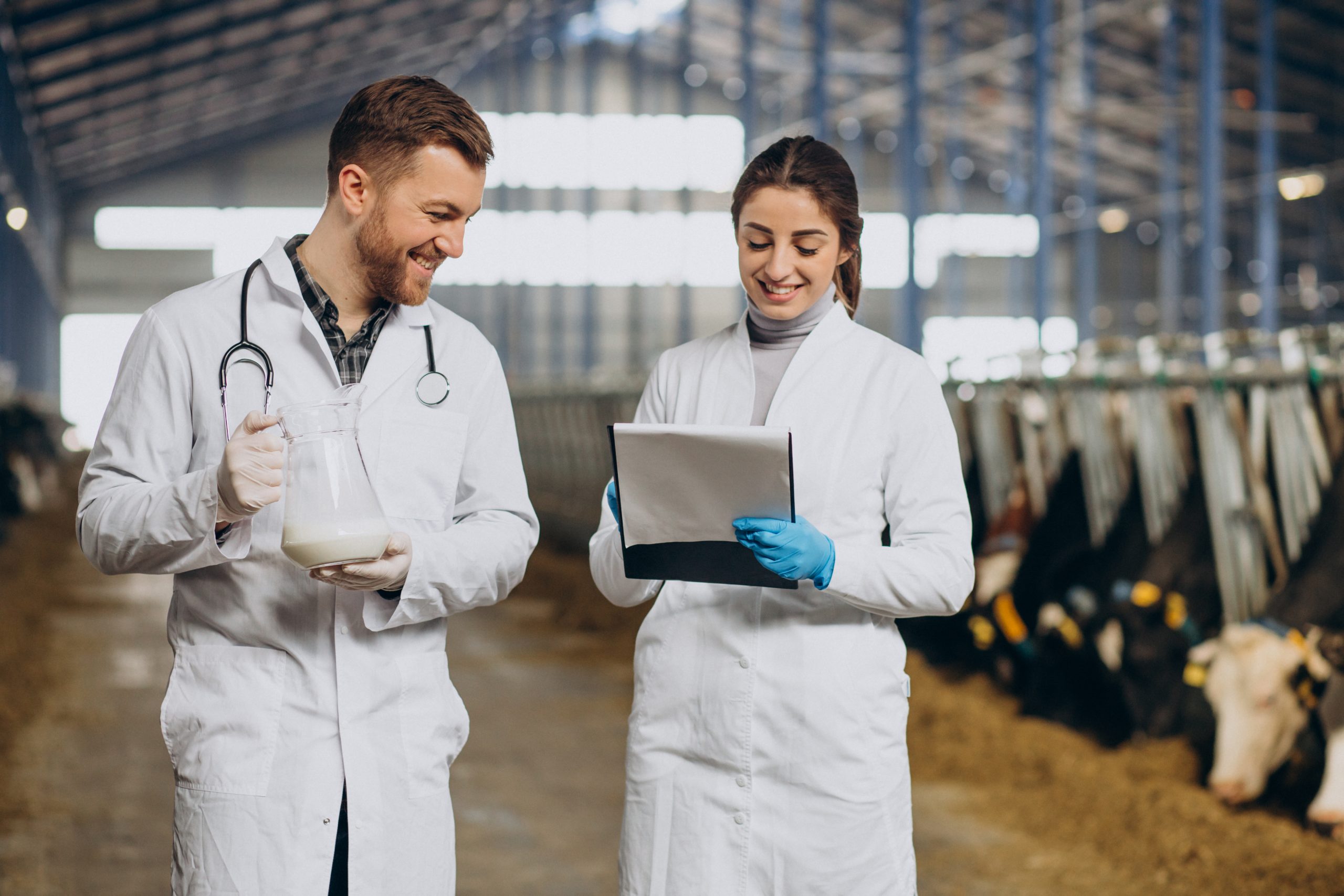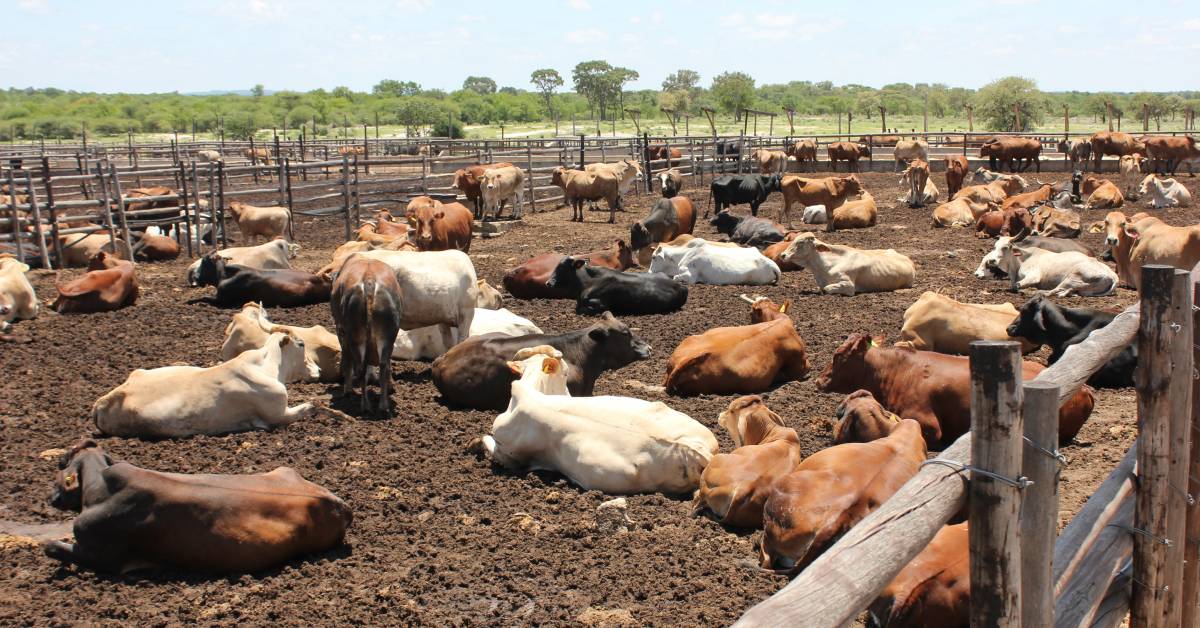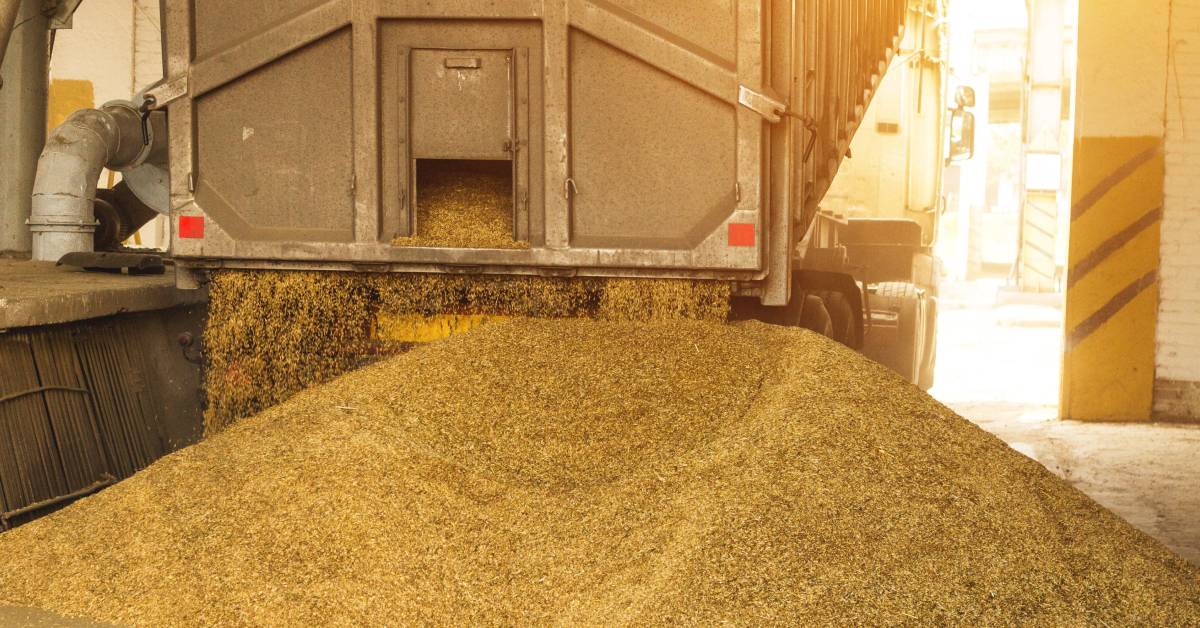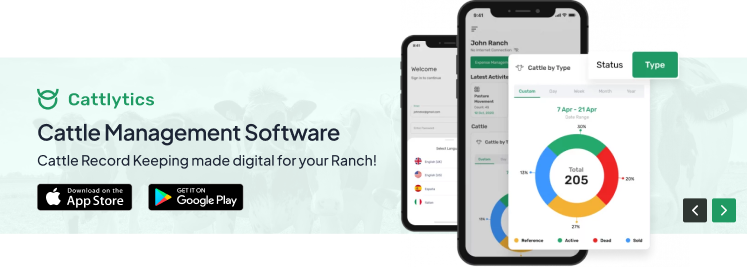Food safety practices play a crucial role in the food industry by ensuring the well-being of consumers and the success of food businesses. In particular, meat processing plants encounter unique challenges in maintaining food safety standards. To address these challenges, effective solutions like EcoDocs have emerged, providing comprehensive support in implementing the best practices for meat processing plants. Regardless of their size, production methods, or marketing outlets, all meat processing plants must prioritize food safety.
Therefore, adopting these practices has the potential to improve production quality and optimize labor efficiency.
Understanding Food Safety Regulations and Compliance:
Food safety practices encompass various regulations and guidelines implemented at the national, state, and local levels.
Below mentioned are some of the prominent regulations of meat processing safety best practices.
Food safety regulations, both at the national and local levels, provide a framework for business owners to follow in order to maintain high standards of food safety. Everyone in the food industry must follow these safety regulations to protect the public health.
HACCP Plans:
HACCP plans are created to proactively identify and address risks and dangers associated with specific foods or production processes. These plans are mandated by the FDA for the juice and seafood industries. The main objective of HACCP plans is to manage potential hazards, such as microbiological, physical, and chemical risks. Implementing HACCP plans can be made more efficient and consistent across facilities and departments by utilizing food safety software that supports HACCP.
Although the FDA does not require HACCP plans for all food categories, any companies subject to the FDA’s Food Safety Modernization Act (FSMA) must have a written food safety plan to comply with the Human Food Rule. This food safety plan incorporates HACCP principles.
According to the FDA, a food safety plan comprises the essential documents within a preventive, controlled food safety system. It follows a systematic approach to identify and control food safety hazards, aiming to prevent or minimize the likelihood of foodborne illnesses or injuries. The plan includes written documents that outline activities ensuring food safety throughout manufacturing, processing, packing, and storage.
Like a HACCP plan, a Food safety practices plan should encompass elements such as
- Hazard analysis
- Preventive controls
- Monitoring procedures
- Corrective actions
- Verification procedures
Consequences of Non-Compliance and Benefits of Maintaining a Robust Food Safety System in Meat Processing Plants:
Ensuring compliance in the meat production industry is one of the most essential keys to success.
Let’s take a look at how it impacts a business’ performance:
Public Health Risks:
Failure to implement food safety protocols in meat processing plants can result in the presence of harmful contaminants in the products, posing significant health risks to consumers
Reputational Damage:
Non-compliance with implementing food safety protocols in meat processing plants can lead to negative publicity, damaging the reputation of meat producers and resulting in a loss of consumer trust.
Legal Consequences:
Neglecting food safety regulations can lead to legal actions, fines, penalties, and potential criminal charges for meat processing plants, potentially impacting their financial stability and operations.
Benefits:
Consumer Safety:
Implementing food safety protocols ensures that agricultural products are safe for consumption, reducing the risk of foodborne illnesses and protecting consumer health.
Regulatory Compliance:
By implementing and adhering to food safety regulations and protocols, ERP in meat processing plants can comply with safety regulations and standards set by regulatory authorities, showcasing responsible agricultural practices.
Operational Efficiency and Cost Savings:
Implementing food safety protocols improves operational efficiency, reduces the likelihood of product recalls, minimizes wastage, and leads to cost savings over time, contributing to the financial stability of meat processing plants.
Assessing and Managing Risks in Meat Processing Plants:
Risk assessment helps meat producers to evaluate and understand the risks associated with their operations, enabling them to take appropriate preventive measures to protect the quality and safety of the food they produce.
Now, let’s look at some preventive measures that one should implement in meat processing plants.
Maintaining good hygiene practices is particularly critical for meat processing plants, as they handle significant volumes of food that may go through multiple stages of processing and distribution before reaching the consumers. This includes
- Regular handwashing
- Wearing appropriate protective clothing
- Sanitation procedures for equipment, tools, and storage areas.
By complying with strict hygiene practices, meat processing plants can efficiently manage food safety risks throughout the food-to-fork food safety journey.
Training and Education for Staff:
In order to prepare for food safety audits, meat producers must prioritize staff training and education to adhere to the food safety standards. Training sessions should cover topics such as
- Proper handling and storage of meat products
- Preventive measures to reduce the risk of contamination
- Adherence to food safety operations.
Additionally, the staff should be trained on the importance of documentation and record-keeping to demonstrate compliance during food safety audits.
In both food-related establishments and meat processing plants, regular and ongoing training sessions are necessary to reinforce knowledge, address new regulations or practices, and maintain a culture of food safety. If you want to enhance and strengthen your business you should follow food safety practices and keep your staff well-trained. Using mentor matching programs can also help your team grow by pairing them with experienced professionals for personalized guidance.
Implementing Standard Operating Procedures (SOPs):
These SOPs help maintain consistent food safety practices, ensuring the establishments adhere to food safety best practices, promoting the safety of their food products.
Training and Guidance:
Fostering an understanding of correct methods and practices for safe food handling, SOPs serve as invaluable training tools for employees, especially new hires. They offer clear instructions on various tasks and processes, equipping employees with the knowledge and skills necessary to consistently implement food safety practices.
Risk Reduction:
SOPs help identify potential hazards and risks associated with food handling and processing. By specifying preventive measures and controls, SOPs minimize the likelihood of foodborne illnesses, cross-contamination, and other safety incidents.
They provide employees with a systematic approach to effectively identify and address risks, supporting food safety practices.
For instance, SOPs related to the following exemplify the implementation of food safety practices:
- Cleaning and sanitization
- Equipment calibration
- Product storage
Cleaning and Sanitization SOP:
Procedure for maintaining clean food preparation surfaces: This SOP outlines step-by-step instructions for cleaning countertops, cutting boards, and other surfaces to remove dirt, debris, and potentially harmful bacteria. It emphasizes the use of appropriate cleaning agents and sanitizers, as per food safety best practices, and specifies the recommended frequency of cleaning to ensure consistent food safety practices.
Calibration of food thermometers:
This SOP details the process for calibrating food thermometers to ensure accurate temperature readings, aligning with food safety best practices. It includes instructions for the calibration procedure, required calibration standards, recommended calibration frequency, and proper documentation to support food safety practices.
Product Storage SOP:
FIFO (First-In, First-Out) method for inventory rotation: This SOP provides guidelines for proper product storage and rotation, a widely recognized food safety best practice. It outlines steps for organizing products based on their arrival dates, ensuring older products are used or sold first to minimize the risk of spoilage or expiration, thereby maintaining food safety practices.
These examples demonstrate how the meat processing plants can develop SOPs tailored to their specific needs and processes, while incorporating food safety practices.
Monitoring and Record Keeping:
Accurate record-keeping for food safety practices serves as a valuable tool for evaluating the effectiveness of implemented measures and facilitating continuous improvement. By analyzing documented data over time, organizations can uncover trends, patterns, and areas for enhancement.
These records become instrumental in conducting thorough root cause analysis, identifying recurring issues, and implementing targeted corrective actions.
One notable technology solution for meat processing plants is EcoDocs, which offers streamlined processes for managing data related to meat processing plants’ safety practices.
Let’s explore how EcoDocs and similar technologies simplify these aspects.
Documentation Management:
- Centralized platform for managing HACCP documents
- Create, store, and organize plans, procedures, and records.
Workflow and Task Management:
- Assign responsibilities, set deadlines, and track progress
- Ensure monitoring, verification, and corrective actions are carried out.
Compliance Monitoring and Auditing:
- Monitor compliance with HACCP requirements
- Schedule inspections, conduct internal audits, and address non-conformities.
Auditing and Continuous Improvement:
The importance of third-party audits cannot be overstated, especially when it comes to ensuring food safety management for meat processing plants. These audits are vital for verifying that food products are safe, meet quality standards, and comply with regulations.
Firstly, third-party audits provide an impartial assessment of a company’s food safety management systems, guaranteeing adherence to the required standards and regulations set by governmental agencies and industry associations. By enlisting an independent auditor to evaluate the company’s processes, an unbiased viewpoint is gained, enabling the identification of areas that require improvement.
Secondly, these audits aid in identifying potential risks to food safety and quality, empowering companies to take proactive measures to prevent any issues that could compromise consumer well-being.
By pinpointing gaps in their food safety management systems, companies can implement corrective actions to ensure compliance with regulations and standards.
Lastly, third-party audits contribute to building trust and credibility with customers, a particularly crucial factor for meat processing plants. Given the growing consumer concerns regarding food safety, consumers want assurance that the food they consume is safe and of high quality. By subjecting their processes to scrutiny by an independent auditor and obtaining certifications affirming compliance with required standards, meat processing plants can instill confidence and trust in their products among consumers.
Benefits:
By utilizing a Food Safety Audit and Inspection Management Software like EcoDocs, you can thoroughly and accurately document the specifics of inspected food items. It is possible to easily customize user-friendly software to conduct audits and inspections according to the specific assessment process, frequency, and workflow requirements.
Adopting software-based safety audits and inspections ensures compliance with essential food quality standards like HACCP, GMP, and FSMA. This, in turn, enhances awareness of food-related risks, leading to improved product quality and a reduction in costs associated with manual labor.
Responding to Incidents and Recall Preparedness:
Technology solutions for meat processing plants can help them effectively manage food safety incidents or recalls. Here are the steps they should take:
Identify the Issue:
Keep a vigilant check and balance in order to monitor daily practices and promptly detect and react to any potential risks to food safety and quality.
Internal Investigation:
Conduct periodic investigations to determine
- The cause of the problem
- The extent of the problem
- The impact/consequences of the problem
Implement Product Withdrawal or Recall:
React effectively by taking instant action to remove the problematic products at hand from the market.
Notify Regulatory Authorities:
Inform the appropriate regulatory authorities about the incident or recall.
Communicate with Customers and Suppliers:
Establish clear communication channels to inform stakeholders about the issue and actions being taken.
Collaborate with EcoDocs:
Utilize EcoDocs, a traceability and supply chain management platform, for accurate product traceability, streamlined product withdrawal, and effective communication during such situations.
By incorporating technology solutions like EcoDocs, meat processing plants can enhance their food safety practices, ensuring public health and maintaining stakeholder trust.
FAQs
What are the common food safety hazards in meat processing plants?
Common food safety hazards in meat processing plants include
- Biological hazards (bacteria, parasites, fungi, viruses)
- Chemical hazards (pesticides, machine oils)
- Physical hazards (glass, metal, toothpicks, jewelry, hair)
How can EcoDocs help streamline the documentation and compliance processes?
EcoDocs streamlines documentation and compliance processes by offering centralized document management, organization, version control, collaboration, automated workflows, compliance monitoring, search and retrieval, integration, and accessibility.
What are the benefits of implementing a digital food safety solution in meat processing plants?
The benefit of implementing food safety is to shield food items from physical harm, decrease food waste, lessen the quantity of preservatives employed in food, and offer labeling indicating nutritional facts, allergy information, and the expiration date of the products.
How often should staff receive food safety training?
Food workers typically need to complete food safety training every 2-5 years, or once during onboarding if not mandated locally.
What are the consequences of non-compliance with food safety regulations?
Failure to comply, fundamentally, can lead to civil fines and criminal consequences, including imprisonment. The United Nations (UN) and the European Union (EU) depend on their member states to enforce sanctions frameworks.







